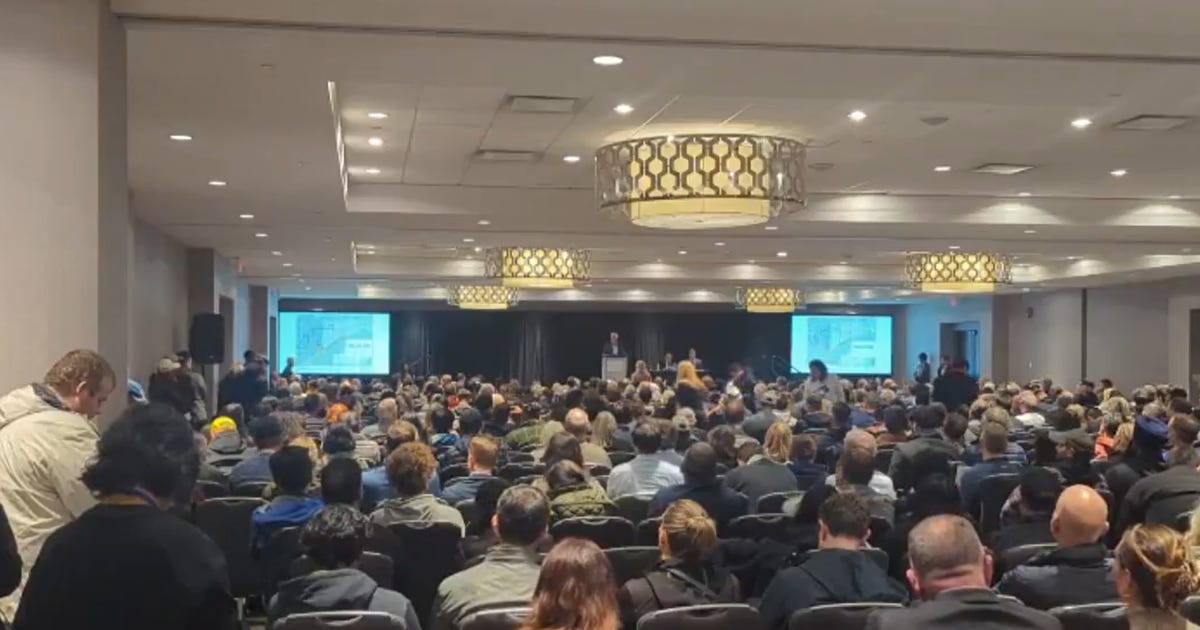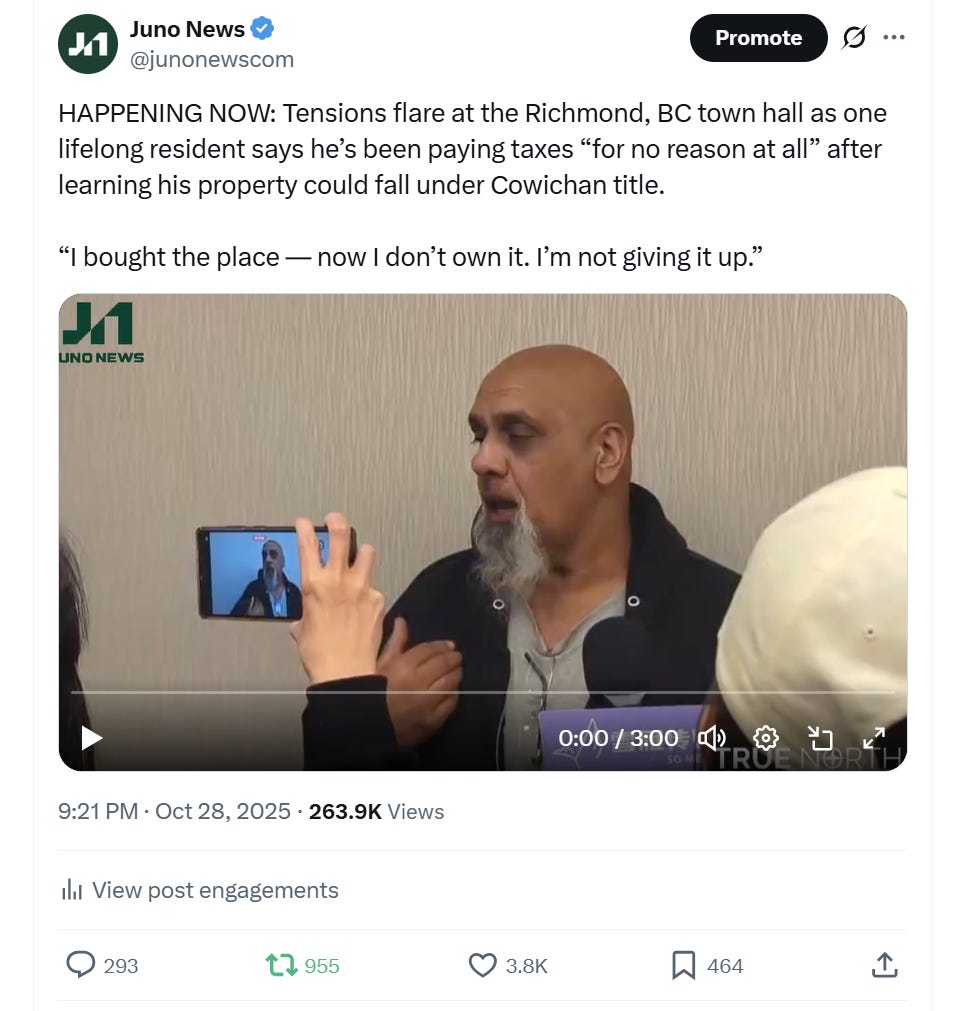Richmond residents tell town hall they were left in the dark on Cowichan ruling
Richmond homeowners, city officials, lawyers, politicians, and concerned citizens packed a town hall on Tuesday to discuss a recent B.C. Supreme Court decision.
Richmond homeowners, city officials, lawyers, politicians, and concerned citizens packed a town hall on Tuesday to discuss a recent B.C. Supreme Court decision that’s got everyone wondering: what’s next for private property rights in Canada?
The event, held at Richmond’s Sheraton Airport Hotel and hosted by Mayor Malcolm Brodie, focused on the August 7 B.C. Supreme Court ruling in Cowichan Tribes v. Canada. The court found the Cowichan Tribes hold Aboriginal title to certain lands within Richmond, areas that include or surround parcels currently held by private property owners.
The court decision covers a 7.5 square kilometre tract of land on the south arm of the Fraser River and on the south shore of Lulu Island in the City of Richmond.
That tract of land includes the private homes of over 100 residents as well as commercial properties owned by corporations like Coca-Cola and Canadian Tire.
In his opening remarks, Brodie called the decision “one of the most consequential rulings of any court in Canadian history” and acknowledged the “significant uncertainty” now facing property owners and the city.
That uncertainty, some residents say, is already having tangible effects. One homeowner told True North his lender declined to renew his mortgage due to changes to his property title.
“I thought I’d get a gift card out of tonight and I got nothing,” he said of the event — before noting his mortgage will not be renewed on account of the court ruling.
“I bought the place, now I don’t own it. I’m not giving it up,” the resident told reporters.
The mayor, city lawyers and B.C.’s attorney general each validated those concerns to some extent, admitting there would be various ramifications for private property owners in terms of ownership, lending, insurance and estate issues, among others.
One of Richmond’s city lawyers, Tom Capuccinello, told residents that Richmond was the only party at trial to argue the legal principle of extinguishment.
Simply put, the extinguishment argument presupposes that Crown grants of fee simple, meaning private property ownership, prompt a de facto and de jure extinguishment of Aboriginal title.
B.C. Attorney General Niki Sharma told residents that argument was a losing one.
“We argued displacement and suspension of Aboriginal title when there is fee simple title,” she told the crowd, which reacted with a hushed silence.
While the B.C. Supreme Court decision does not automatically strip private homeowners of title, both Mayor Brodie and Premier David Eby have said it raises serious questions about how private property interests interact with Aboriginal title.
When True North asked if the decision could affect other property owners in B.C., Conservative MLA Steve Kooner called it a “precedent-setting case,” noting that land claims cover more than 100 per cent of the province.
Fellow B.C. Conservative MLA Teresa Wat explained that the reason for more land claims than land is due to overlapping claims between different First Nations.
The Cowichan Nation, meanwhile, is pushing back against what it refers to as “misinformation.”
In a statement following the town hall, the Nation said comments suggesting the court’s decision could undermine private property rights in Richmond were “misleading” and “deliberately inflammatory.”
“The Cowichan Nation’s case about the Tl’uqtinus settlement lands in Richmond does not dispute or invalidate any individual’s private title,” the statement said. “Private property remains intact and unaffected by the ruling.”
At this stage, the premier of B.C., the attorney general, the mayor of Richmond, many Richmond residents and several other key decision-makers continue to sharply differ on interpretations of the court’s decision.





The Richmond land in question is worth 100 billion dollars. That works out to $12,500,000 for each of the Cowichan claimants. A Quebec aboriginal title claim was made immediately following the Cowichan decision. Is it any wonder, when a person can become rich by claiming that some ancient ancestor fished or hunted in the area hundreds of years ago. There are 45,000 outstanding indigenous claims according to the Yellowhead Institute. Unless this madness is stopped, Canada will become Venezuela
Hardly anybody has heard the story of Kennewick man for a good reason... The Canadian people have tolerated censorship and the CBC to our absolute peril.